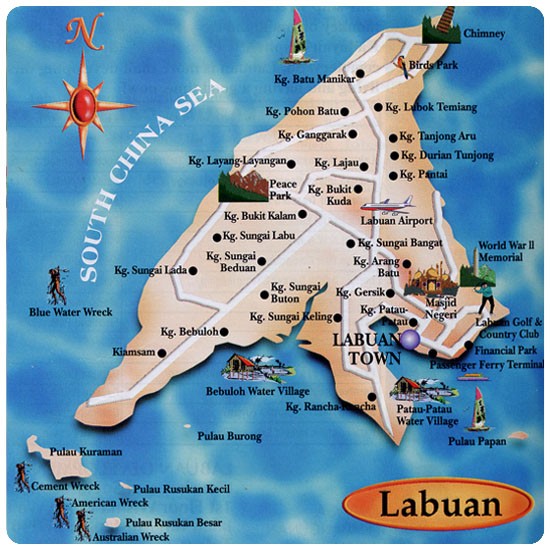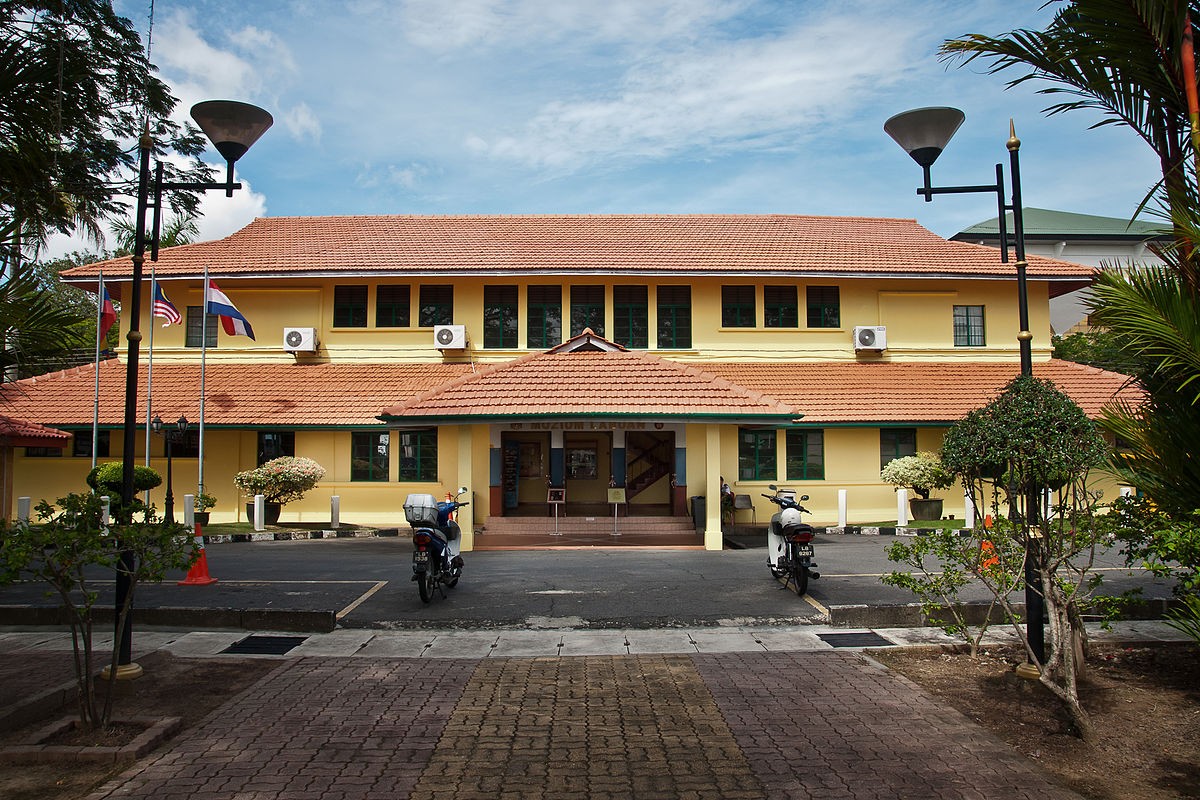
A Labuan Protected Cell Company (PCC) is governed by the Labuan Companies Act of 1990 (amended in 2010). In February of 2010, the Malaysia government amended the Labuan Companies Act to include the PCC structure which gained popularity in other International Business Financial Centers (IBFC) around the world in the early 2000’s.
A Labuan PCC is a corporation consisting of its main body with its own capital which is able to create separate cells with their own capital, accounts, and dividends. Each cell is an independent unit. There is no limit on the number of separate cells in which the main corporate body can create. The key is that each cell is separate from the main corporate body and all of the other cells. As a legally independent unit, every cell has no claim against the liabilities or the assets of the other cells or the main corporate body.
Uses of a Labuan PCC
Protected Cell Companies originated in Guernsey to allow insurance companies to create one company to act as an umbrella for each type of insurance product (life, auto, fire, business, civil lawsuits, death, etc.) and for each policyholder to have separate accounts. Labuan PPC’s follow the original purpose by allowing their insurance companies the same platform as in Guernsey.
In addition, a Labuan PCC can be used to conduct a mutual funds business where each mutual fund become a separate cell and various classes of funds and shares can be in specific cells. This way, the failure of one investment will not adversely affect the other cells in the same company.
Holding companies also find a PCC useful as each company where the holding company owns the majority of its shares can be separated into its own cell.
Asset protection trusts also find a PCC structure useful to separate each asset into its own cell to minimize risks and liabilities one asset may cause for the trust and the rest of the trust’s assets.
Advantages
Insurance companies enjoy the advantages of a PCC as an effective method for managing risks in separate risk portfolios. Mutual funds operations find PCC’s allow investment diversity in a risk controlled environment. Holding companies can keep every company and asset separate from the others including the risks, liabilities, and profits. An asset protection trust can separate each asset from the others along with the risks and liabilities they may incur.
Labuan laws protect each cell with its ring-fencing rules to isolate each cell’s assets from the liabilities of the other cells and main corporate body. One cell declaring insolvency will not put assets held in the other cells at risk.
Background
Labuan is a territory of Malaysia. Its official name is the “Federal Territory of Labuan”. This territory has been in the international business center industry since 1990.
Labuan Protected Cell Company (PCC) Benefits
Labuan PCC’s enjoy these benefits:
• Low Taxes: PCC’s can chose to pay a flat 3% tax rate on profits or pay around $4,700 USD annually in lieu of the 3% rate.
• Foreign Owners: Foreigners can own 100% of the shares in a PCC.
• Flexibility: PCC’s can create unlimited independent cells for assets and companies and business pursuits.
• Low Risks: Separating assets and companies into independent cells offers lower risks due to insolvency or other liabilities.
• Privacy: Cell owners’ names are never in public records.
• One shareholder: Only one shareholder is required.
• One Administrator: The minimum requirement is one administrator or fund manager for the core cell and for each cell.
• British Common Law: Labuan adheres to English common laws.
• English: Many Labuan’s speak English.

Protected Cell Company (PCC) Name
A Labuan PCC company name will not resemble any other company name in Labuan.
Furthermore, a Labuan PCC must include either the words “Protected Cell Company” or “PCC” at the end of its name.
Independent Legal Entity
A Labuan PCC is a single independent legal entity able to own assets and properties and assume its own obligations. Even though independent, each cellular cell is not a separate entity from the main corporate body.
Allocation of Cells
A Labuan PCC operates in two ways. The main corporation is called the “core cell” while the “cellular part” can be formed in unlimited number of cells. The PCC’s assets and liabilities may be divided into different cells. Every cell has its own distinctive name, assets, capital, and liabilities. The law provides a “ring fence” protecting each cell from the debts and liabilities of the other cells and the main corporate body. Thus, if one protected cell is unable to pay its debts, its creditors can only go after the cell’s assets and not the corporate body or any other cell.
Core Cell
The main corporate body is also called the “core cell”. Its assets are called “non-cellular assets” because the assets are distinct and separate from the assets of the other cellular cells.
Segregating Assets and Liabilities
A specific cell’s assets are isolated with the independent cell and only subject to seizures from creditors resulting from the non-payment of the liabilities incurred by that cell. Thus, the specific cell is protected from the liabilities of other cells’ liabilities and creditors. If a specific cell’s assets are insufficient to pay for its liabilities, the company has the option to transfer its core assets to pay the particular cell’s liabilities. However, that is only an option and not required by law.
Registration
A Labuan PCC can incorporate as a Labuan Trust Company in the Labuan IBFC. An existing Labuan Company can become a Labuan PCC by obtaining the approval from the Labuan Financial Services Authority.
The following information is required to register a new PCC:
1. Company name;
2. Name and details of the fund manager for the PCC fund manager or administrator;
3. List the initial cells and include the names, designations, and identification for each cell;
4. Name and details for each fund manager or administrator of every cell;
5. Copy of memorandum or prospectus for each cell;
6. Other relevant documents requested by the government.
Administration
A Labuan PCC may only have one Board of Directors to manage the corporate body. However, each cell can have a committee appointed to manage its affairs.

Taxes
Every Labuan PCC is taxed pursuant to the Labuan Business Activity Tax Act (LBATA) of 1990 as the main taxable corporate body. The tax law makes no distinction of the number of cells or their individual profits as all profits and losses are lumped together into the main corporate body for tax purposes.
The PCC can choose between paying a 3% tax on the audited net profits for the entire PCC and its cells. Or, elect to pay a maximum tax of 20,000 MYR (Currently less than $4,700 USD).
Note: Every American and anyone paying taxes on global income must declare all income to their tax agencies.
Registered Agent and Office
Every Labuan company must have a local registered agent and local office address.
Shareholders
A minimum of one shareholder is required.
Administrators
A minimum of one administrator or a fund manager is required.
Authorized Capital
The minimum required authorized capital is $10,000 USD with one share at par value of $1 USD.
Public Records
Names of beneficial owners of cells are not included in the public records. The fund managers and administrators names are part of the public records. Corporate shareholders’ names are included in the public records.
Accounting
Non-trading corporations do not have to file audited financial statements.
Annual General Meeting
Annual general meetings are required.
Shelf Companies
Shelf companies or corporations are not available.
Conclusion
Labuan PCC’s enjoy these benefits: low taxation, 100% foreign ownership; flexibility, low risks, privacy, one shareholder, one administrator, British common law, and English is spoken by many.


